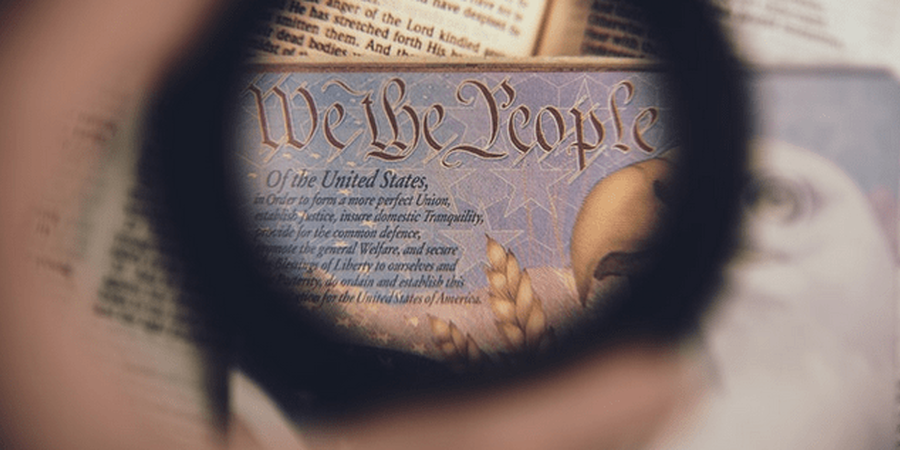PENNSYLVANIA STATE - Philadelphia wears its nickname, “The Birthplace of America,” like a badge of honor—and for good reason. This gritty, vibrant city isn’t just a dot on the map; it’s where the United States took its first shaky breaths, ink on parchment sparked a nation, and the ideals of liberty and democracy found their footing. From the hallowed halls of Independence Hall to the cracked chime of the Liberty Bell, Philly’s streets echo with the audacity of 1776.
So, what makes this city—over New York, Boston, or anywhere else—the cradle of American identity? Let’s dig into the history, the moments, and the symbols that cemented Philadelphia’s claim.
The Epicenter of Independence
Picture this: it’s the summer of 1776, and a sweltering room in Independence Hall buzzes with tension: fifty-six men—lawyers, farmers, merchants—huddle over a document about changing the world. The Declaration of Independence, penned by Thomas Jefferson and debated fiercely in that modest brick building, isn’t just a breakup letter to Britain—it’s America’s birth certificate. Philadelphia, then the most significant, most prosperous city in the colonies, was the natural stage for this drama. Its central location, thriving port, and intellectual heft made it the beating heart of revolutionary fervor.
But the Declaration was just the start. Fast forward to 1787, and the same hall—then called the Pennsylvania State House—hosts another seismic moment: the drafting of the U.S. Constitution. Over four sweaty months, delegates like James Madison and George Washington hammered out a framework that’s still the bedrock of American governance. No other city can claim it hosted the Declaration and the Constitution—twin pillars of the nation’s founding. Philly didn’t just witness history; it shaped it.
The Liberty Bell: A Symbol Rings Out
Down the street from Independence Hall hangs the Liberty Bell, a 2,000-pound icon with a crack as famous as its message. Initially cast in 1752 to mark Pennsylvania’s colonial assembly, it became a megaphone for freedom when abolitionists latched onto its inscription: “Proclaim LIBERTY Throughout all the Land unto all the Inhabitants Thereof” (Leviticus 25:10). Though it likely didn’t ring on July 4, 1776—myths love a good story—it grew into a symbol of the American spirit, flaws and all.
That crack? It’s poetic. The bell’s imperfections mirror the nation’s—bold ideals tested by slavery, inequality, and strife. Yet its voice endures, drawing millions to its glass home in the Liberty Bell Center. Philadelphia gave America this emblem, a reminder that liberty is a work in progress, forged in struggle.
A City of Firsts
Philadelphia’s “birthplace” cred isn’t just about documents and bells—it’s a city of firsts that built the nation’s bones. It was America’s first capital from 1790 to 1800, while Washington, D.C., was still a swampy dream. Congress met here, Washington lived here (at the President’s House site), and the federal government took shape. The First Bank of the United States, founded in 1791 on 3rd Street, was the country’s first stab at a national economy—Hamilton’s brainchild, right in Philly’s backyard.
Add to that the first hospital (Pennsylvania Hospital, 1751), the first university (University of Pennsylvania, 1740), and even the first stock exchange (1790). Philadelphia wasn’t just birthing ideas; it was building the infrastructure of a fledgling nation. Its streets—think Chestnut, Market, and Arch—were the arteries of early American life.
The People and the Pulse
Beyond buildings and artifacts, Philly’s people fueled its founding legacy. Benjamin Franklin, the city’s adopted son, wasn’t just a kite-flying inventor—he was a printer, diplomat, and civic genius who turned Philadelphia into a hub of Enlightenment thought. His Pennsylvania Gazette stirred revolutionary zeal, and his library (the nation’s first lending library) spread knowledge like wildfire. Then there’s Betsy Ross, stitching (maybe) the first flag in her Old City home, adding a domestic thread to the patriotic tapestry.
The city’s diversity helped, too. Quakers, Germans, Irish, and free Black communities mingled here, shaping a melting pot that reflected America’s promise—and its tensions. By 1776, Philly was a microcosm of the colonies, messy and ambitious, ready to lead.
Why Not Boston or New York?
Boston had its Tea Party, and New York had commerce, but Philadelphia outshone them as the birthplace. Boston’s rebellion lit the fuse, but Philly turned ideas into action—its leaders didn’t just protest; they governed. New York grew into an economic giant later. Still, in the 18th century, Philadelphia’s size (nearly 40,000 people by 1790), sophistication, and the central spot between North and South made it the go-to. Plus, hosting the Continental Congress sealed the deal—Philly was where the colonies became a country.
The Legacy Lives On
Today, Philadelphia’s “Birthplace of America” title isn’t just history—it’s alive in every cobblestone and cheesesteak. Walk Elfreth’s Alley, the oldest residential street in the U.S., and feel the past underfoot. Stand in Washington Square, where unknown soldiers from the Revolution lie buried, and sense the cost of that birth. The National Constitution Center, a modern shrine to 1787, keeps the conversation going with exhibits that challenge and inspire.
Philly’s not perfect—its grit and scars are part of the story. But that’s why the nickname fits. America wasn’t born polished but bold, flawed, and fighting. Philadelphia cradled that beginning, from the scratch of quills to the ring of a cracked bell. It’s not just where the nation started—it’s where it keeps learning to be.
Share This Article on Social Media


